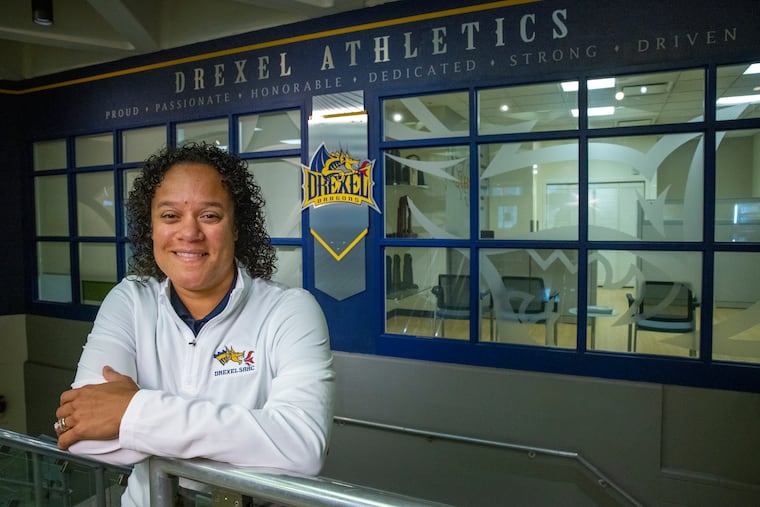Drexel AD Maisha Kelly offers insight on the evolution of NIL
“I think the most challenging thing is that the execution doesn’t match up with the intent,” Kelly said during the conference, which focused this year on women in sports.

Over the last two years, name, image, and likeness has become embedded in college athletics as student-athletes are now able to secure sponsorships, make money off their brand, and more. But with this new territory, issues have cropped up, and Drexel athletic director Maisha Kelly offered her insight on the subject Wednesday during a panel at the LeBow College of Business’ fifth annual sports business conference.
“I think the most challenging thing is that the execution doesn’t match up with the intent,” Kelly said during the conference, which focused this year on women in sports. “So it has become and has grown into something that ... the way that it’s being executed cuts at the core of our values and what we want to see and how we want to see things done.
“How can we, at some way, return to kind of the core values of what intercollegiate athletics is? The larger landscape issue, of course, is that we are living in a legal landscape where student-athletes and how we’ve governed intercollegiate athletics for the last 50 years, we’ve had too many guardrails to suggest that it truly is this additional experience as you’re pursuing a degree.”
» READ MORE: Do Title IX and NIL play well together? Some urge caution.
Kelly noted the goal of NIL — “student-athletes should, just like their non-student-athlete peers, be able to leverage intellectual properties, their skill sets, and their identity. No one should own that but themselves” — but she wondered if that’s what’s truly taking place.
A couple months before the NIL laws were passed, the NCAA implemented a one-time transfer waiver, meaning that players who elect to switch schools won’t have to sit out during their first year on campus. The addition of NIL with the waiver has only increased player movement.
Although Drexel hasn’t seen many transfers in basketball, the situation is something Kelly is aware of.
“It’s a reality for us as a mid-major program to have to contemplate how do we manage our programs knowing that there could be a world where a student starts here for one year, two years, and they’re leaving because they’ve been recruited away to a larger program,” Kelly said. “... That’s just going to be the dynamic and how we have to manage. So we’ll continue to do our part and address what we think should be a retention of four or five years, depending on the program that the students are pursuing.”
» READ MORE: Former Drexel forward Kylie Lavelle transfers to Penn State